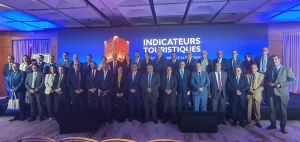How do small medium enterprises and successful large corporations differ in the tourism industry? Does each entrepreneur anticipate the ever-evolving changes to rules, regulations and laws?
Consider abandoning the advice of attorneys, and not retaining legal counsel at your own peril…Investment into multiple sectors of any given economy, is possible to be attained solely driven from tourism. New and aspiring entrepreneurs, seasoned professionals, and big business corporations each year look to invest and explore new projects, expanding their footprint and adapting their criteria for establishing themselves in an ever-changing environment where global shifts in the way we operate and do business happen more frequently than we would like to consider.
The tourism industry is no di4erent, and the Covid19 pandemic was a clear example of how rules,regulations, and laws were swiftly adapted to adhere to the changes in the societal values which we recognized at the time. We are now capable of evolving business practices and accounting for change far more fluidly than ever before.
But beyond Covid19, we recognize that there still remains tourism businesses inept at recognizing that laws are changing continuously, that economic, judicial interpretation, coupled with legal precedents, new regulations, rules, and laws require a trained eye to be able to benefit the venture and to implement the requirements of the laws within the business. It is imperative to ensure that whilst strategizing, negotiating and investing in the next big move, a complimentary professional panel is retained. Legislation adoption ensures that from birth to inception and finally to successful operation may be attained with the aid of an attorney.Retaining an attorney does not begin at litigation, but when operations commence key factors to consider are the laws applicable from contracts with labor, material suppliers, consumers, marketing, advertisements, and including the protection of personal information, and a myriad of other legislations which must be adhered to and simultaneously complied with.

Now is the time to sit up and take note, the tourism sector is a multibillion-dollar industry. It is a sector which has the capabilities to make or break down the economy in numerous countries. This sector is also ear marked to receive some of the biggest foreign direct investments globally, with big corporations and multinationals seeking to invest into projects where growth and strategic global expansion is capable of being secured.
Tourism with its multiple sectors, from accommodation providers, food & beverage, events & conferencing, logistics & travels, coupled with AI powered travel apps, plays an important role in showcasing the most appealing and diverse aspects of any country, it also is capable of increased employment rates at grass roots levels, and upliftment of communities.If these ventures are created e4ectively adhering to the required legislations, and operations maintained within the standards required the countries and the services providers are assured of a constant income stream.
But to the budding entrepreneur, and investor who are each looking to enter into the same sector,on many occasions we are unfortunately witnessing an ever-increasing growing trend of a limitation on the understanding of rules, and regulations, a mere surface level interpretation, the consequence of which exposes the businesses to multiple fines, non-adherence and lack of compliance.This is further exacerbated by a growing trend in nonlegal personnel presenting AI generated contracts which fall short of protecting the interests of the entrepreneur,and least of all adherence to the myriads of legislation, and regulations as required for operating a successful venture, with a complete disregard for protection of the consumer and the eventual tourist.
With artificial intelligence and technology providing tools for innovation and reshaping the status quo of the tourism industry. The ability for tour operators to extend into digital tourism and allow for comprehensive real-time information must be factored, utilizing the correct tools and ensuring compliance is a prerequisite. There exists extensive international laws and applicable local laws within country of origin, which must be recognized at the highest levels.
Retaining legal counsel, ahead of investing and for the benefit of the businesses, allows for the prospect of ensuring that laws, regulations, and relevant accreditations are not compromised. The geographical region with which the entity is registered, recognizing the requirements, and catering to both the national and international guests. The extent of exposure in case of negligence is extensive, therefore recognizing fair and equitable solutions for both the business and the consumer is imperative.
By Safiyya Akoojee
B.A, LLB, LLM
Director Fortunatus Advisory LLC United Arab Emirates
Director Thomson Wilks Inc. South Africa
This article was first published in the September/October Edition of VoyagesAfriq Travel Magazine







